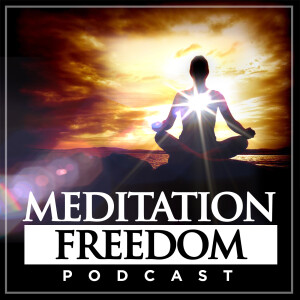
Meditation Freedom Podcast | Live with Mindfulness | Reduce Stress | Increase Wisdom Compassion
Health & Fitness:Alternative Health

MF 27 - Meditation and Mindfulness Research with Amanda Gilbert
 2015-07-13
2015-07-13
Download
Right click and do "save link as"
Interview with Amanda Gilbert - Meditation and Mindfulness Research Amanda Gilbert is the Executive Director for the Sugar Stress Environment and Weight Center and a Clinical Research Coordinator for the Aging Metabolism and Emotions Center at the University California, San Francisco. Her work focuses on conducting and implementing clinical research in meditation, mindfulness and mindfulness-based stress reduction, as well as examining how these restorative health behaviors affect our minds and biology. As a long-term meditation practitioner, she draws on years of personal meditation experience and training to advocate for the life-changing effects of a daily meditation practice. In addition to conducting clinical research on meditation, she is a meditation teacher to those looking to learn and start a daily meditation practice through one-on-one individualized sessions where she connects contemplative science to daily practice. Her mission is to support as many people as possible in experiencing optimum daily well-being through meditation and mindfulness. How did you get started with meditation? Many start a meditation practice for health reasons, or dealing with stress, or getting curious. And some start to meditate from a religious point of view. And also it is for some about cultivating meaning. For Amanda it was about healing, physically, mentally, and spiritually from challenges she went through as a young adult. She's been in the health and wellness field for a long time. Perhaps there is something more. She wants to connect with herself, her intuition, her inner knowledge, her heart, and higher self. The path for Amanda has been cultivating a meditation and mindfulness practice. Was there something, an event or moment that triggered this? Amanda has had her moments to that were beautiful opportunities to shift, to have a breakthrough. To set yourself on a different path. For her it was more of a life path. Many books on self growth, meditation and self development. And really all the information was pointing her to meditation path. Also, Amanda was exposed to great teachers in the medical world. One of her first teachers was Deepak Chopra. He has a book called, “Quantum Healing”. She was given that book during a breakdown leading to breakthrough period in her life. When you approach it through biology, it really speaks to the effects and power, and outcomes of a meditation practice. So she started reading a lot of literature on what a meditation practice can do for us physically, mentally, emotionally, psychologically, and spiritually. All this reading led her down a path of a meditation practice. What particular practice did you start with? Amanda started with mantra based practice in 2009. Earlier she was exposed to many other meditation and mindfulness practices, her undergraduate degree was in holistic health and wellness. But she got serious about doing a daily practice. That is when it clicked for her. The mantra practice is powerful practice for a novice. Reason is that the mantra is a way for our minds to focus on. Translates as mind-vehicle. It's a word, similar to in and out, in breathing techniques. By combining with Sanskrit it can be meaningful. The mantra based practices are a way for beginners to develop a strong practice. She can see that through her research and teaching meditation position. Continue reading the show notes at: http://meditationfreedom.com/27
view more
More Episodes
012345678910111213141516171819
Create your
podcast in
minutes
- Full-featured podcast site
- Unlimited storage and bandwidth
- Comprehensive podcast stats
- Distribute to Apple Podcasts, Spotify, and more
- Make money with your podcast
It is Free
- Privacy Policy
- Cookie Policy
- Terms of Use
- Consent Preferences
- Copyright © 2015-2024 Podbean.com






